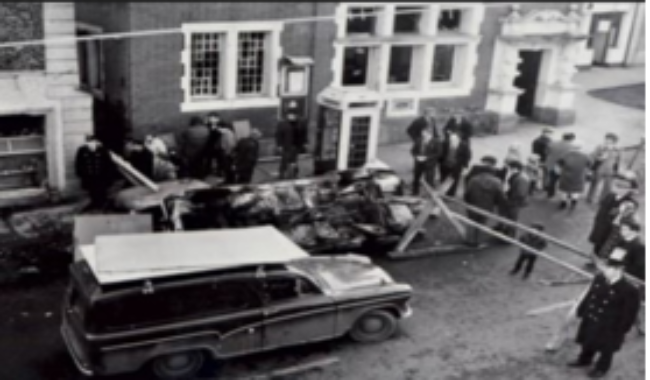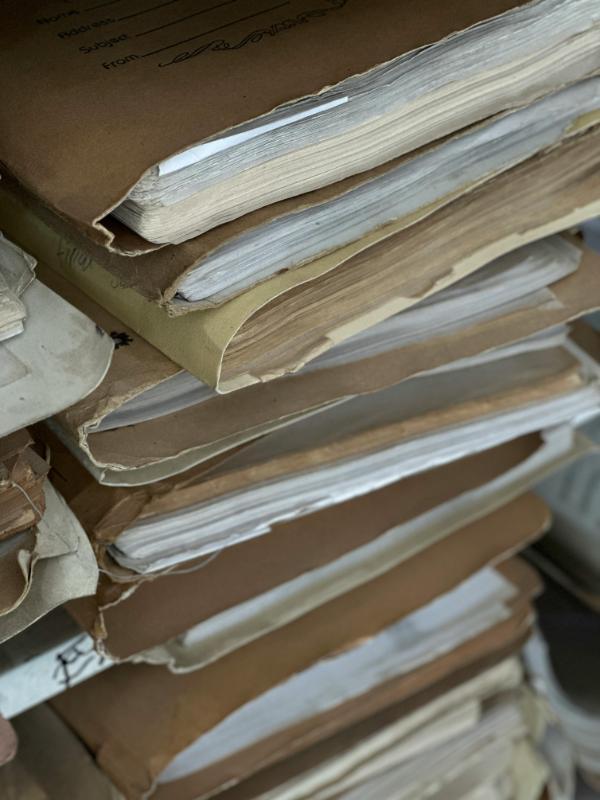Research team
- Dr Edward Burke, Assistant Professor in the History of War since 1945, School of History, UCD.
Funding
- 2020-2022: Two-year early career leadership AHRC fellowship.
Tuesday, 21 January, 2025

Dr Burke’s research on loyalist bombings in the Irish state in the 1970s brought archival evidence to light that demonstrated that the British Army and the Royal Ulster Constabulary had accumulated valuable evidence and identified lead suspects who they believed had carried out bombings in the Irish state in 1972 and 1973. However, this intelligence was not passed onto An Garda Síochána and they remained unaware of it until the publication of Dr Burke’s findings in 2020. In response to a Dáil question which directly cited Dr Burke’s (opens in a new window)journal article, the Taoiseach made a commitment to request explanation and assistance from the UK government. As a result, Dr Burke has since assisted Gardaí investigating loyalist bombings.
 This research set out to examine the impact of loyalist bombings in the Irish state in the early 1970s. It concluded that, at a tactical level, loyalist terrorism in the Irish border region between 1972 and 1974 worked. Cross-border attacks, including bombings in Irish towns, prompted the Irish government to reinforce security along the border – a long-standing loyalist demand. The loyalist campaign led to the IRA embarking on an effort to punish those they (wrongly) suspected of passing information to loyalists, resulting in the killing of a Protestant parliamentarian, Senator Billy Fox, and widespread condemnation of the organisation south of the border.
This research set out to examine the impact of loyalist bombings in the Irish state in the early 1970s. It concluded that, at a tactical level, loyalist terrorism in the Irish border region between 1972 and 1974 worked. Cross-border attacks, including bombings in Irish towns, prompted the Irish government to reinforce security along the border – a long-standing loyalist demand. The loyalist campaign led to the IRA embarking on an effort to punish those they (wrongly) suspected of passing information to loyalists, resulting in the killing of a Protestant parliamentarian, Senator Billy Fox, and widespread condemnation of the organisation south of the border.
However, short-term gains were outweighed by a growing perception among nationalists that the British state tolerated or even colluded in such attacks, undermining the British Army’s campaign to gain trust (and information) within the Catholic population of Northern Ireland. The research concluded that middle-class loyalists played an important role in mobilising and equipping loyalist paramilitary organisations. It argued that the British Army showed an excessive tolerance of loyalists with political capital or ties to the security forces despite evidence that such individuals were directly supporting the activities of loyalist paramilitaries. The Royal Ulster Constabulary and the PSNI also did not provide important intelligence and evidence to the Irish police and the Barron Inquiry.
Photo: An Garda Síochána
 On 14 December 2020, RTÉ - the Irish public broadcaster - aired a documentary, (opens in a new window)Belturbet: The Bomb That Time Forgot - in which Dr Burke’s research findings on loyalist bombings in the Irish state were presented. These findings had previously been published in a (opens in a new window)Terrorism and Political Violence journal article and later, more expansively, in the 2024 monograph - (opens in a new window)Ulster's Lost Counties: Loyalism and Paramilitarism.
On 14 December 2020, RTÉ - the Irish public broadcaster - aired a documentary, (opens in a new window)Belturbet: The Bomb That Time Forgot - in which Dr Burke’s research findings on loyalist bombings in the Irish state were presented. These findings had previously been published in a (opens in a new window)Terrorism and Political Violence journal article and later, more expansively, in the 2024 monograph - (opens in a new window)Ulster's Lost Counties: Loyalism and Paramilitarism.
In late 1972 and early 1973, loyalist paramilitaries killed four people in Dublin and two in the border village of Belturbet - and wounded hundreds more. Although there had been an inquiry commissioned by the Irish government, Mr Justice Henry Barron reported in 2004 that there was a general lack of evidence on suspects who may have been involved in these attacks. Sixteen years later, Dr Burke’s research in the archives of the Imperial War Museum and the UK National Archives revealed evidence that demonstrated that the British Army and the RUC had gathered evidence and identified suspects who they believed had carried out fatal bombings in the Irish state in the early 1970s, but that this intelligence and evidence had not been passed onto investigators.
On 15 December 2020, after viewing the documentary, and in response to a parliamentary question which directly cited Dr Burke’s research, the Taoiseach made a commitment to request an explanation from the British government and the Northern Ireland Executive.
Representing Cavan-Monaghan, Brendan Smith TD (opens in a new window)issued a statement on his website on the renewed appeal by the Gardaí in Cavan into the Belturbet bombing.
“In September 2020 I put on the record of Dáil Éireann information that had come to me through the good investigative work of Professor Edward Burke [of the University of Nottingham] in relation to the Belturbet bombing. Subsequently the Minister for Justice confirmed to me that she had referred this information to An Garda Síochána for investigation.”
The Minister for Justice in Ireland forwarded Dr Burke’s (opens in a new window)Terrorism and Political Violence article - Loyalist Mobilisation and Cross-Border Violence in Rural Ulster, 1972-1974 - to An Garda Síochána as a source to aid the ongoing murder investigation. The police considered this archival research to be of major significance to their investigation. Dr Burke worked with them to accumulate more evidence by examining documents from the period and providing expertise and context related to the loyalist murders of two children, Geraldine O'Reilly and Patrick Stanley, at Belturbet in 1972.
As you are aware, two children, Geraldine O'Reilly and Patrick Stanley, were killed on 28th December 1972 when a car bomb exploded in Belturbet, Co. Cavan. The information you uncovered through your research, and provided to the television documentary 'The Belturbet bomb: an atrocity that time forgot', was not known to the investigation team and has opened up several important lines of inquiry.
— Letter to Dr Edward Burke from Inspector Graham Tolan, Monaghan Garda Station, 20 April 2022.